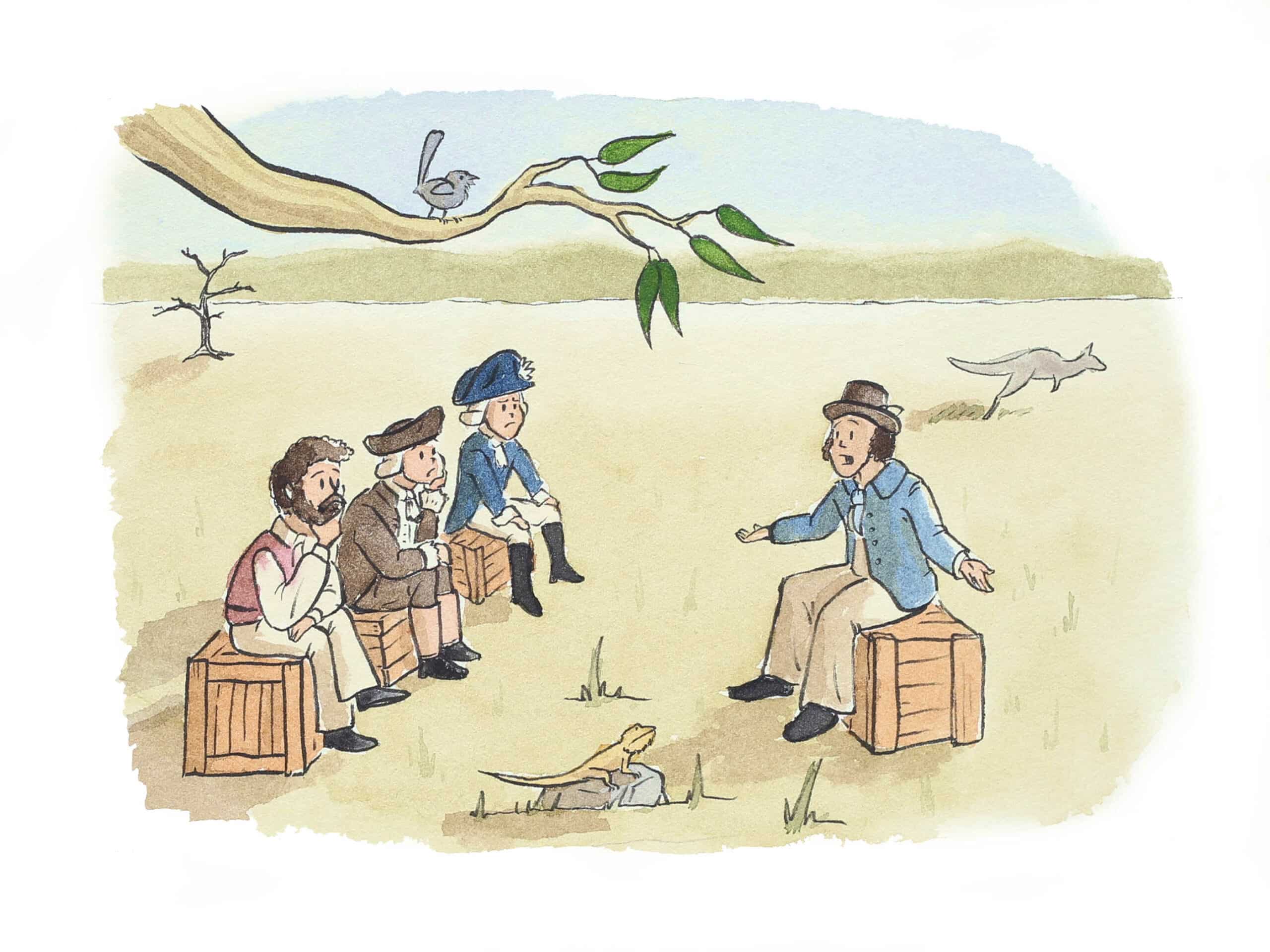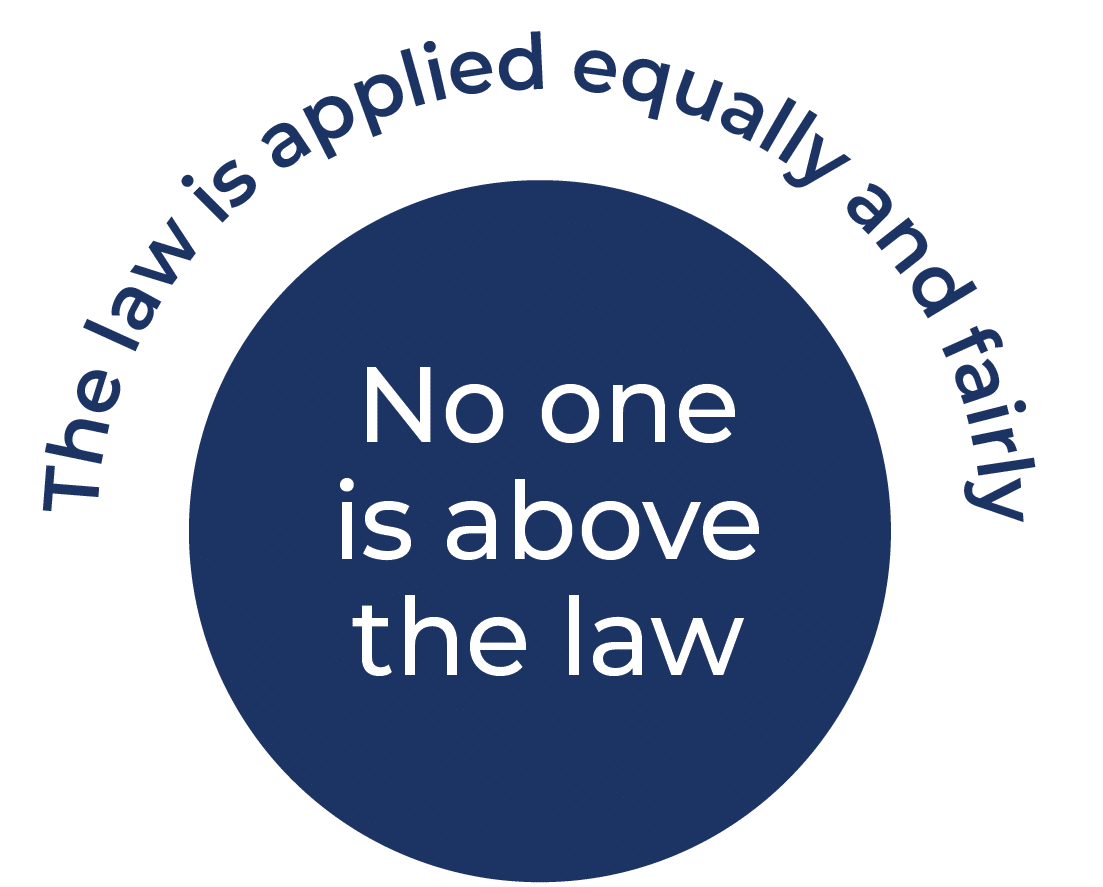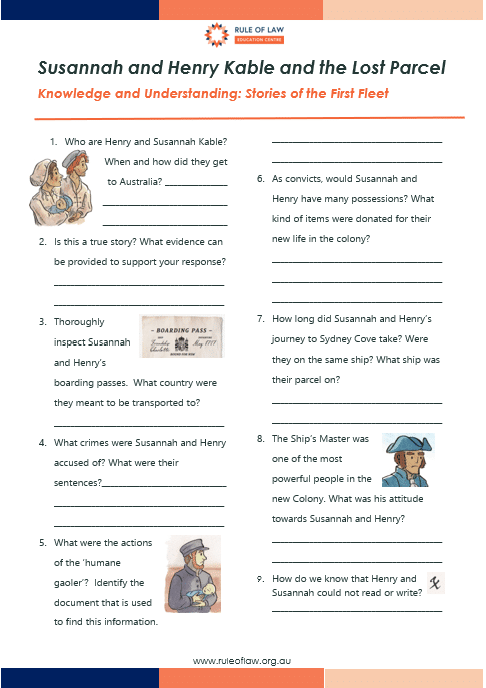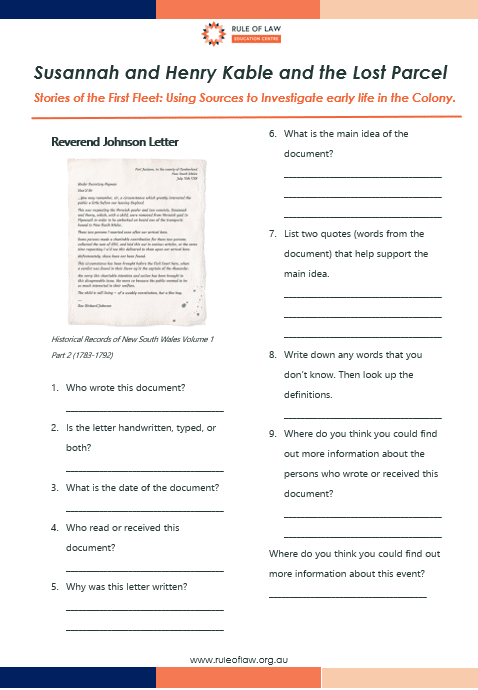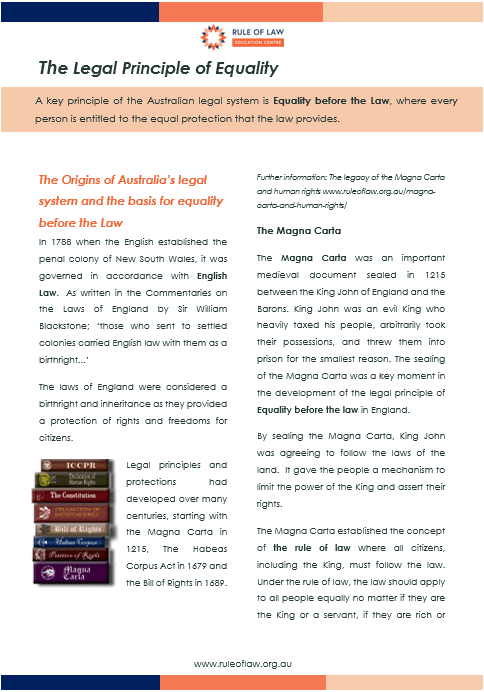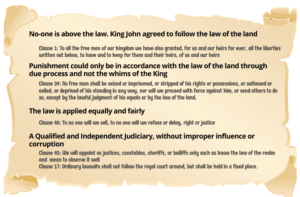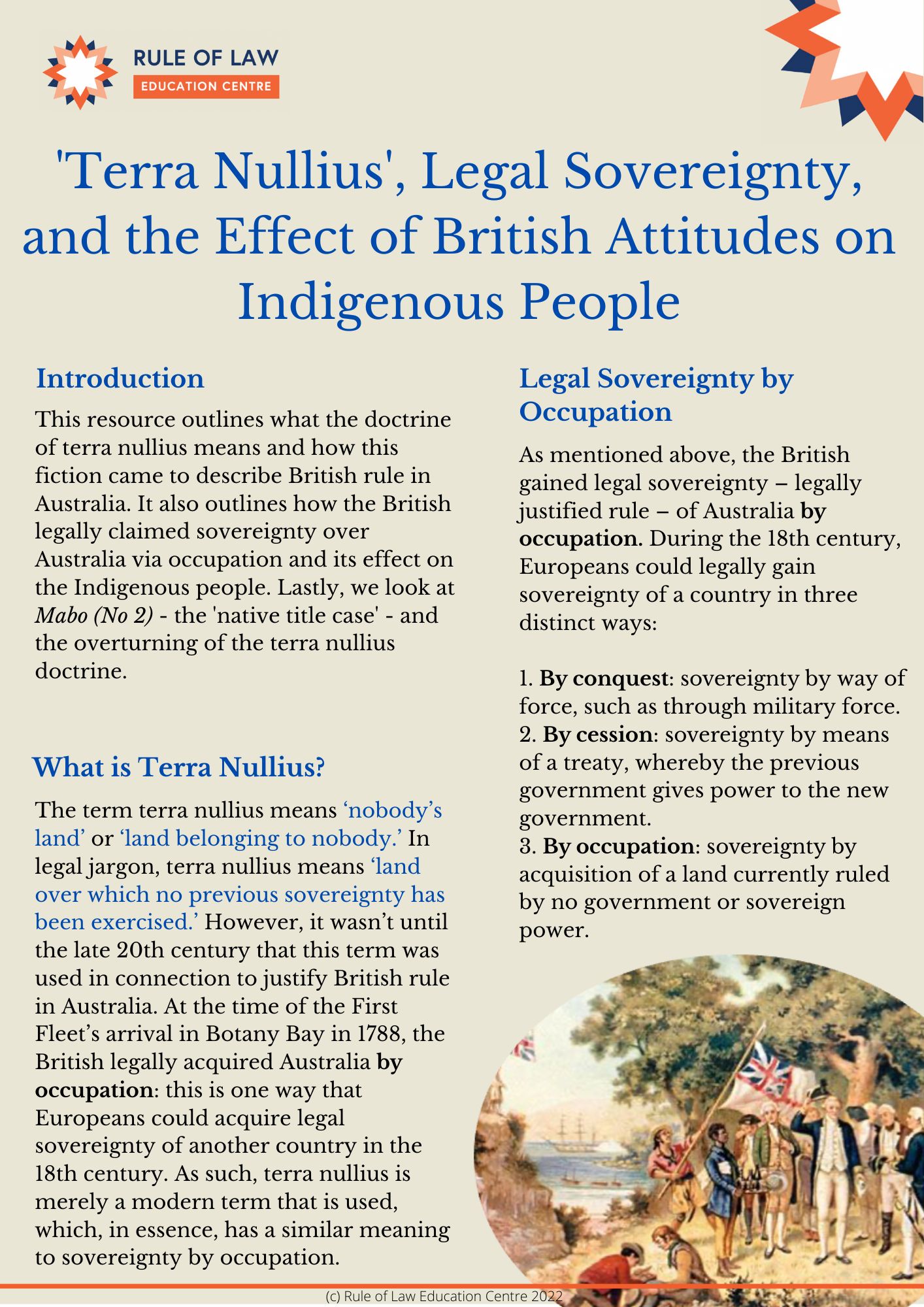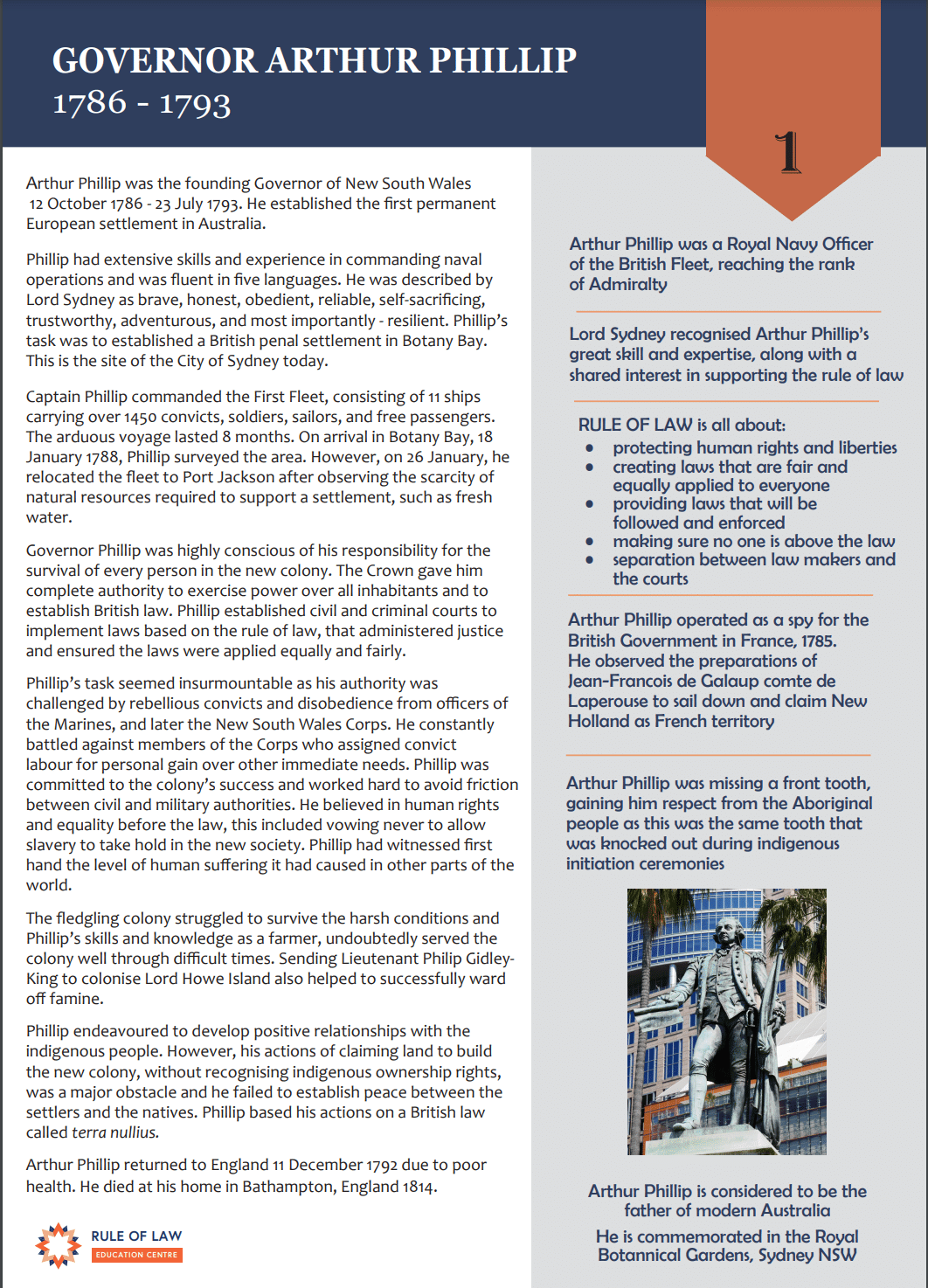The First Civil Case in Australia
The Story of Henry and Susannah Kable and their lost parcel
How a parcel lost on the First Fleet shaped justice, fairness, equality and the rule of law in Australia.
The story culminates in the first civil case in New South Wales (Cable v Sinclair [1788] NSW KR 7, Court of Civil Jurisdiction), where the poor convict couple sued the mighty ship’s captain for their lost parcel and won! Setting the democratic foundations of our nation today that the law must be applied equally and fairly to all, and people should have equal access to the protections provided by the law.
The Lost Parcel Storybook
A captivating true story of a convict couple, Henry and Susannah Kable and the disappearance of their parcel of belongings on their journey on the First Fleet.
A beautifully illustrated and well-researched picture book that uses source documents such as letters, transcripts and newspaper articles. Aligned with the Australian Curriculum Civics and Citizenship strand, this storybook is for families and schools to help understand the principles of justice, fairness, equality and the rule of law.
Summary of the Case of Susannah and Henry Kable
Even though Susannah and Henry were poor convicts who could not read or write, they were able to use the justice system to restore their loss and sue the powerful Ship’s Captain.
This resource provides a summary of the case and outlines the key evidence given during the trial.
Click here for a PDF Summary of the case and here for an easy to read version of the court documents.
Education Resources
The below activities and worksheets are aligned with the Australian Curriculum Civics and Citizenship and History strands to help families and students investigate the everyday life of convicts in the early colony and to understand how the principles of justice, fairness, equality and the rule of law were part of the English legal system that came with the First Fleet to New South Wales.
Character Cards
Suggested Lesson Plans for the Lost Parcel
A suggested 3-4 period lesson plan (approximately 2-4 hours) for Year Levels 6 – 9 has been developed for teachers to use when teaching to any of the curriculum areas listed below. Below the table, teachers can find the following support documents to assist them in using the story book The Lost Parcel and the story of the Kables.
- A printable lesson plan document detailing learning intention, success criteria and outlines for the structure of the lessons
- Printable worksheets to assist students to understand and analyse the story of the Kable family, its significance and relevance to rights in modern Australia and the importance of their experience in establishing the rule of law in the Australian Legal System
- Printable copies of the key primary source documents (Court documents and letters) with easy to ready versions for students to use and links to see online versions of the original documents.
Please note that these worksheets have been formulated for a junior high school audience. You may need to modify some activities for younger audiences. Resources for older year levels will be released soon.
Curriculum Links:
Please consult the relevant curriculum/ syllabus elaborations to create the most suitable place for the use of these resources for your students. Most links provided below are knowledge and understanding links. Many skills links have not been provided to minimise the volume of information. Please contact our team if you would like any assistance identifying curriculum links at education@ruleoflaw.org.au.
Australian (v9) HASS – Civics and Citizenship
| Yr | Substrand/ Code/ Outcome | Descriptor |
| 6 | Civics and Citizenship (AC9HS6K06) | The key institutions of Australia’s system of government, how it is based on the Westminster system, and the key values and beliefs of Western democracies |
| 7 | Laws and Citizens (AC9HC7K03) | The key principles and features of the Australian legal system, including the Australian Constitution, the rule of law and the court system |
| Citizenship, diversity and identity (AC9HC7K05) | How values based on freedom, respect, fairness and equality of opportunity can support social cohesion and democracy within Australian society | |
| 8 | Laws and Citizens (AC9HC8K04) | The types of law in Australia, including criminal law and civil law, and the place of First Nations Australian customary law |
New South Wales Commerce
| Yr | Substrand/ Code/ Outcome | Descriptor |
| 9/10 | Core 4: Law, Society and Political Involvement (COM5-3) | Examines the role of law in society – outlines types of laws, including criminal and civil |
Victoria Humanities F-10 Civics and Citizenship
|
Yr |
Substrand/ Code/ Outcome |
Descriptor |
|
7/8 |
Laws and Citizens (VCCCL022) |
Explain how Australia’s legal system aims to provide justice, including through the rule of law, presumption of innocence, burden of proof, right to a fair trial and right to legal representation |
|
9/10 |
Laws and Citizens (VCCCL034) |
Discuss the key principles of Australia’s justice system, including equality before the law, independent judiciary, and right of appeal |
Australian (v9) HASS – History
|
Yr |
Substrand/ Code/ Outcome |
Descriptor |
|
|
4 |
History (AC9HS4K03)
|
The experiences of individuals and groups, including military and civilian officials, and convicts involved in the establishment of the first British colony (eg Rev Richard Johnson and convicts on the first fleet)
|
|
|
5 |
History (AC9HS5K03) |
The role of a significant individual or group, including First Nations Australians and those who migrated to Australia, in the development of events in an Australian colony
|
|
New South Wales History
| Yr | Substrand/ Code/ Outcome | Descriptor | |
| Stage 3 | The Australian Colonies |
The role that a significant individual or group played in shaping a colony; for example, explorers, farmers, entrepreneurs, artists, writers, humanitarians, religious and political leaders, and Aboriginal and/or Torres Strait Islander peoples (ACHHK097)
|
|
Victoria Humanities F-10 History
|
Year/ Level |
Substrand/ Code/ Outcome |
Descriptor |
|
5/6 |
Historical sources as evidence (VCHHC083) |
Identify the origin, content features and the purpose of historical sources and describe the context of these sources when explaining daily life in colonial Australia, reasons for migration and causes and effects of Federation |
|
|
Historical sources as evidence (VCHHC084) |
Describe perspectives and identify ideas, beliefs and values of people and groups in the past |
|
|
Cause and effect (VCHHC087) |
Explain the significance of an event and an individual or group that influenced change in the Australian colonies and in Australian society since Federation |
|
|
The Australian Colonies (VCHHK092) |
The role that a significant individual or group played in shaping and changing a colony |
New South Wales Preliminary Legal Studies
| Part | Substrand/ Code/ Outcome |
| Part I: The Legal System | 2. Sources of Contemporary Law (British origins, development of common law (individual rights)) |
| Part I: The Legal System | 3. Classification of Law (Private Law (civil law) – property law (could also link to contract law) |
| Part II: The individual and the law |
|
| Part II: The individual and the law |
|
| Criteria for effectiveness: |
Application of the Rule of Law |
Victoria Legal Studies
| Part | Substrand/ Code/ Outcome |
| Unit 1, Area of Study 1 |
Outcome 1 (the principles of justice: fairness, equity and access) |
| Unit 1, Area of Study 3 |
Outcome 3 |
| Unit 2, Area of Study 2 |
Outcome 2 (the principles of justice: fairness, equity and access, institutions that resolve civil disputes, the purposes and types of remedies) |
| Unit 2, Area of Study 3 | Outcome 3 (the ways in which rights are protected in Australia – common law, one Australian case that has had an impact on the protection of rights in Australia (as a historical example) |
Queensland Legal Studies
| Part | Substrand/ Code/ Outcome |
| Unit 1: Beyond reasonable doubt | Topic 1: Legal Foundations: Describe the concept of the rule of law, sources of law in the Australian Legal System; Explain the purpose of laws within a society |
| Unit 2: Balance of probabilities | Topic 1: Civil law foundations: explain rights that are protected by civil law; analyse and evaluate equitable access to the civil justice system and how personal, social or economic circumstances or background can present legal barriers for groups within society |
SACE Legal Studies
| Part | Substrand/ Code/ Outcome |
| Stage 1: Rights |
Common law rights; Fairness and justice |
| Stage 1: Focus area | Law and communities: What is the rule of law? How does the Australian Legal System reflect its English Heritage? Optional focus areas: Example 3: Justice and Society (common law rights, human rights, access to justice) |
| Stage 2: Focus area |
Sources of law: How adequately does the Australian legal system achieve the rule of law? |
| Stage 2: Focus area | Dispute resolution: What is justice? Is justice accessible? |
| Stage 2: Option area |
When rights collide (How do laws provide for future generations?) |
WA Politics and Law (ATAR Course)
| Part | Substrand/ Code/ Outcome |
| Unit 4 – Accountability and rights | Political and legal systems: the rule of law, human rights (property rights); the ways human rights are protected in Australia |
Victoria Economics
| Part | Substrand/ Code/ Outcome |
| Unit 2, Area of Study 1 | Outcome 1 (the factors that may affect aggregate demand/ supply and the level of economic activity, the potential benefits/ costs of growth) |
| Unit 3, Area of Study 1 |
Outcome 1 (non-price factors likely to affect demand, the role of free and competitive markets in promoting an efficient allocation of resources and improved living standards) |
| Unit 3 , Area of Study 3 |
Outcome 2 (the difference between material and non-material living standards and factors that may affect living standards, the meaning and importance of aggregate demand/ aggregate supply and the factors that may affect levels of AD/ AS) |
Use Source documents to investigate everyday life in the early colony
The Lost Parcel’s aim is to stimulate the readers interest in and enjoyment of exploring the past, to develop a critical understanding of the past and its impact on the present, to develop the critical skills of historical inquiry and to enable the reader to participate as active, informed, and responsible citizens.
Stories of the First Fleet: Knowledge and Understanding
Using short answer questions, this resource uses the book ‘The Lost Parcel’ to investigate the lives of two convicts Henry and Susannah Kable, their reasons for transportation with the First Fleet, the attitudes of the English community to their plight and their experiences in the early colony.
Stories of the First Fleet: Investigating Source Documents
This resource uses two source documents, a letter from Reverend Richard Johnson, and the Charge Sheet from the NSW Court of Civil Proceedings (see below) to investigate the lives of Henry and Susannah Kable and their experiences with the legal system in the early colony.
Timeline Worksheet
Using the details from the Lost Parcel Book or their own research, students can complete this timeline of events.
Write your own Play or Narrative
This activity helps students create a play or narrative story to deepen their understanding of the story of Henry and Susannah and their
lost parcel.
Key Legal Principle: Equality before the Law
The Lost Parcel provides a historical case study showing how the equal protection of the law protected the rights of a convict couple and contributes to a fair society.
Origins of Australia's Legal System and Equality before the Law
In 1788 when the English established the penal colony of New South Wales, it was governed in accordance with English Law. As written in the Commentaries on the Laws of England by Sir William Blackstone; ‘those who sent to settled colonies carried English law with them as a birthright…’ The laws of England were considered a birthright and inheritance as they provided a protection of rights and freedoms for citizens.
Legal principles and protections had developed over many centuries, starting with the Magna Carta in 1215, The Habeas Corpus Act in 1679 and the Bill of Rights in 1689.
The Magna Carta
The Magna Carta was an important medieval document sealed in 1215 between the King John of England and the Barons. King John was an evil King who heavily taxed his people, arbitrarily took their possessions, and threw them into prison for the smallest reason. The sealing of the Magna Carta was a key moment in the development of the legal principle of Equality before the law in England.
By sealing the Magna Carta, King John was agreeing to follow the laws of the land. It gave the people a mechanism to limit the power of the King and assert their rights.
The Magna Carta established the concept of the rule of law where all citizens, including the King, must follow the law. Under the rule of law, the law should apply to all people equally no matter if they are the King or a servant, if they are rich or poor.
As all people are equally subject to the law, all people must equally answer for their actions under the law and the law must be applied to each person in the same way. To ensure all people are bound by laws, there also must be equal access to the protections provided by the law through a fair trial and an independent and impartial judiciary.
The Magna Carta included provisions that ensured equality before the law such as:
Equality before the Law and the principles from the Magna Carta that no-one is above the law and the laws must be applied equally and fairly became key legal principles of the English justice system.
The Australian Constitution
On 1 January 1901, the Commonwealth of Australia Constitution Act (1901) came into effect.
The Australian Constitution builds upon the common law and English legal principles but does not expressly require equality before the law. Instead, the rule of law forms an underlying assumption in the Constitution.
The Constitution supports the rule of law by ensuring all peoples, including those in power are governed and bound by the laws of Australia.
Secondly, the Constitution provides for the separation of powers with an independent Judiciary to ensure the law is applied equally and fairly, including by those who make the laws (Parliament) and those who administer the laws (Executive).
International Human Rights
The UN Declaration of Human Rights, together with the International Covenant on Civil and Political Rights, expressly provide for all persons to be equal before the law.
International Covenant on Civil and Political Rights (ICCPR) Article 26 states: ‘All persons are equal before the law and are entitled without any discrimination to the equal protection of the law.’
Although Australia has signed and ratified the ICCPR, only some articles have been enshrined in statutes such as the Racial Discrimination Act 1992 (Cth) and Anti-Discrimination Act 1977 (NSW).
Exceptions to Equal Treatment
“The Laws of the land should apply equally to all, save to the extent that objective differences justify differentiation“- Lord Bingham, ‘The Rule of Law’
There may be times where equal treatment will in fact create inequality. For the vulnerable and disadvantaged people, they may need specific protection or assistance to ensure they receive equal protection from the law and therefore equality before the law may not mean ‘same treatment.’
In the case of Susannah and Henry Kable, they were vulnerable and disadvantaged. As they had no legal training and could not write, they required assistance in preparing the Charge brought before Court. It is unknown who wrote the document (though many suspect Reverend Johnson) but it illustrates where individuals needed particular assistance to be able to receive protection from the law on an equal basis to those who can write and have knowledge of legal matters.
Equality before the law an ideal…
The story of Susannah and Henry highlights the protection that the rule of law provided in that specific context to them during the first civil case in the new colony. It does not address how the English law was applied to Indigenous Australians during that time, or the many failings that occured in the early days of the colony when the rule of law was at its infancy.
Studying this case should encourage Australians to celebrate both our Indigenous heritage and the democratic principles supported by the rule of law that have shaped our nation. It should inspire us to ensure the protection of the law is provided equally and fairly to all members of the Australian community, just as they were in the case of Susannah and Henry Kable.
Property Rights led to Economic Growth
Clearly defined property rights, secured by the rule of law reduce risk and drive investment.
As outlined by the American Bar Association:
“At the heart of economic activity lies the need for certainty and predictability. The rule of law ensures that legal frameworks are transparent, consistent, and enforced impartially. In societies where the rule of law prevails, businesses can operate with confidence, knowing that contracts will be upheld, property rights protected, and disputes resolved fairly. This certainty reduces risks for investors and encourages entrepreneurship, leading to vibrant business ecosystems and higher levels of innovation.”
In this first civil case we see the legal system providing an effective mechanism for resolving of disputes and the protection of property, even if it was owned by a convict! With confidence in the legal system to safeguard rights, invetment rises, so does economic growth which in turn creates jobs and drives prosperity.


View the Original Source Documents
Use the range of source documents below to investigate how the colony was established, the reasons that the Kables were on the First Fleet and the compassionate attitudes towards this convict family. Some of the links to the source documents may require you to sign up to access the document.
ACHASSK085 Stories of the First Fleet, including reasons for the journey, who travelled to Australia, and their experiences following arrival. Using a rance of sources, investigate the everyday life of a convict who sailed on the First Fleet and lived in the eary colony.

Orders in Council
6 December 1786
In 1717, King George I of England passed the Transportation Act, whereby a reprieve from the death sentence could be given and the sentence changed to transportation to America. King George III passed a similar Act in 1768 and then, due to the American War of Independence passed an Act in 1777 extending transportation to ‘any parts beyond the Seas whether the same be situation in America or elsewhere.’
On 6 December 1786, King George III passed the Order in Council to establish a penal colony on the ‘Eastern Coast of NSW or some other of the islands adjacent such a place.’

Boarding Passes
May 1787
These are not primary source documents but a secondary source of information regarding details of the Kable’s journey that can be found in Church Records, Charge Sheets, Court Documents and Ship Records. Many of these documents can be found in the book ‘Damned Rascal’ written by descendants of the Kable Family.
Although Susannah stole goods of a lesser value than Henry, her transportation was longer than Henry’s because she stole from her employer.

Newspaper Articles
November and December 1786
On 11 November 1786, the Norfolk Chronicle published the story of the Humane Gaoler who had reunited the Kable family to travel on the First Fleet.
In response, many more letters where written in the Norwich and London Chronicle, and a large sum of money was donated to support the plight of the Kable family.

The Charge Brought to Court
1 July 1788
Cable v Sinclair [1788] NSW KR 7, Court of Civil Jurisdiction Proceedings, was written on behalf of the Kables (who at the time were illiterate), and addressed to the Judge Advocate of the colony, David Collins. This was the first civil case that was held in the new colony of New South Wales.
What is surprising about this case is that it involves a dispute between a poor convict couple and one of the most powerful people in the Colony, a Ship’s Master Duncan Sinclair. It is an excellent example of how all people, no matter their wealth or status should receive the equal protection of the law, and established the principle of equality as a foundation of the legal system from the very inception of the new colony, that was to later become Australia.

Reverend Johnson Letter
12 July 1788
Reverend Richard Johnson was the Chaplain to the First Fleet and the person entrusted to give Susannah and Henry Kable their parcel when they arrived in New South Wales. Rev Johnson was also one of the people who sat on the Civil Court.
He writes this letter just under two weeks after the first civil case, to Under Secretary of the Home Department England, Evan Nepean providing an update of the Kable family and the parcel of goods that was donated to them. Click here for an easy to read version of the letter.

Henry Kable’s Letter
18 July 1788
Henry’s letter back to his mother in England was printed in the Norfolk Chronicles. A shorter version also in the London Chronicles on 23 July 1789.
As Henry could not write, it is not known who wrote this letter.
You will see that the letter is not addressed to Henry’s father. Henry’s father was also involved with the burglary with Henry in 1783. As his father was older he did not receive a reprieve of his sentence and was hung on 5 April 1783.

Background Knowledge
Civil Law
The Lost Parcel tells the story of the first civil case in NSW.. but what exactly is Civil law? See our poster to see what is civil law, the sources and areas of civil law, the parties, standard of proof and the remedies available.
Human Rights and the Magna Carta
The legacy of the Magna Carta and its effect on human rights documents, can be seen by tracing its evolution from the Magna Carta to the Universal Declaration of Human Rights.
European Settlement and Terra Nullius
What does the doctrine of terra nullius means and how did this fiction came to describe British rule in Australia? How did the British legally claimed sovereignty over Australia via occupation and what was its effect on the Indigenous people?
A Colony Full of Convicts
Did Britain want to establish a new prison facility, or did it want to just dump their unwanted prisoners somewhere, while no one else was looking? Information sheet about the colony and its purpose.
Lord Sydney
While many people around the world are familiar with the city of Sydney, few people, even those residing in Sydney, know who it is named after. Learn all about Lord Sydney and why he is worth celebrating.
Governor Arthur Phillip
Fact Card on Governor Phillip, who was highly conscious of his responsibility for the survival of every person in the new colony and is considered to be the
father of modern Australia
Acknowledgements
The Lost Parcel was written by the team at the Rule of Law Education Centre: Robin Speed, Sally Layson, Leanne Davis, Justine Hanks, Aaron Martano, Heidi Windybank and Katherine Layson.
Concepts have drawn from ‘The Rule of Law in a Penal Colony’ by David Neal, the works of Professor Martin Krygier, ‘Damned Rascals? A chronicle of Henry and Susannah Kable’ by Paul Kable and June Whittaker and assistance from Bill Kable.
This project is supported by Create NSW’s Cultural Grant Program, a devolved funding administered by the Royal Australian Historical Society on behalf of the NSW Government.

